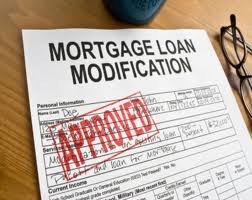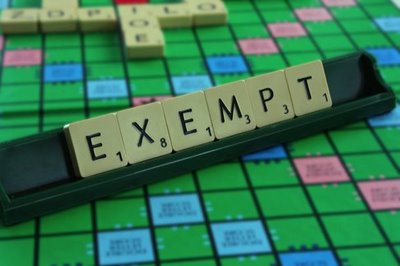 Elusive principal reductions are hard to come by, but we recently scored a very big win on behalf of one of our prior foreclosure clients turned Chapter 13 client. This week Ocwen agreed to a reduction in principal from $130,000 to $49,000 at 2.625% interest. This family’s principal and interest payment dropped to $224. Escrow is anticipated at another $200 for taxes and insurance.
Elusive principal reductions are hard to come by, but we recently scored a very big win on behalf of one of our prior foreclosure clients turned Chapter 13 client. This week Ocwen agreed to a reduction in principal from $130,000 to $49,000 at 2.625% interest. This family’s principal and interest payment dropped to $224. Escrow is anticipated at another $200 for taxes and insurance.
This Bartow, Polk County, Florida family had lost their employment in 2008. By the time they obtained new employment nearly two years had passed and a foreclosure lawsuit was filed by MERS as nominee for Home 123 Corporation in 2008. A HAMP mod was denied during the foreclosure process. Prior to a foreclosure judgment being entered, the family filed a Chapter 13 in a final effort to keep their home. One of the problems was that the arrearage was $31,000 all of which had to be paid in the five year Chapter 13 plan. Moreover the home was valued now at $50,000 per the most recent tax assessment while $130,000 was owed on the home on a first mortgage. In bankruptcy, we as debtor’s counsel filed an objection to the Proof of Claim on the basis that proper documentation was not filed. Missing endorsements demonstrated a lack of standing on behalf of the mortgage company, among other problems.
A couple weeks before trial, we arranged a conciliation conference with opposing counsel and their client. Our clients were again considered for a HAMP modification which was denied a second time. We offered a new amortizing mortgage of $50,000 at 30 years at 5% interest. Ocwen came forward with an independent modification of something even better: $49,000 at 2.625 %. Payment $224 plus escrow. Hard to beat. Clients jumped at the offer needless to say.
To give credit where credit is due, I have no idea how much of this was because of Ocwen or because of our stellar legal wrangling 🙂 I have heard of Ocwen reducing principal elsewhere in the nation, but have seen no reports locally. In an article in DSNews.com a site for those in the mortgage default servicing industry, Ocwen has explained in their experience negative equity increases the likelihood of a re-default 1.5 to 2 times and that approximately 15 percent of all Ocwen loan modification involve some element of principal reduction.
Continue reading →
 Mortgage modifications are often determined by whether the owner (not servicer) is either a participant in HAMP or a recipient of TARP bailout funds.
Mortgage modifications are often determined by whether the owner (not servicer) is either a participant in HAMP or a recipient of TARP bailout funds. Reboot Your Life: Tampa Student Loan and Bankruptcy Attorney Blog
Reboot Your Life: Tampa Student Loan and Bankruptcy Attorney Blog


 The Bankruptcy Court for the Middle District of Florida, Tampa Division, has recently implemented a mediation program for homeowners wishing to modify their first mortgages. The Orlando Division has had a
The Bankruptcy Court for the Middle District of Florida, Tampa Division, has recently implemented a mediation program for homeowners wishing to modify their first mortgages. The Orlando Division has had a  Our Florida clients sometimes ask me why they cannot strip off a second mortgage in a Chapter 7 like often done in a Chapter 13 bankruptcy nowadays. The limitation can be found in the United States Supreme Court’s decision in
Our Florida clients sometimes ask me why they cannot strip off a second mortgage in a Chapter 7 like often done in a Chapter 13 bankruptcy nowadays. The limitation can be found in the United States Supreme Court’s decision in  NACBA (National Association of Consumer Bankruptcy Attorneys) responded this weekend to the government’s latest approach to the foreclosure crisis with what I call the
NACBA (National Association of Consumer Bankruptcy Attorneys) responded this weekend to the government’s latest approach to the foreclosure crisis with what I call the  Bankruptcy clients who are new to Florida come to our office complaining about what I call the Exemptions Calculus Problem. Learning calculus seems simpler. Below are some useful sites and a brief explanation as to how exemptions work.
Bankruptcy clients who are new to Florida come to our office complaining about what I call the Exemptions Calculus Problem. Learning calculus seems simpler. Below are some useful sites and a brief explanation as to how exemptions work. Elusive principal reductions are hard to come by, but we recently scored a very big win on behalf of one of our prior
Elusive principal reductions are hard to come by, but we recently scored a very big win on behalf of one of our prior